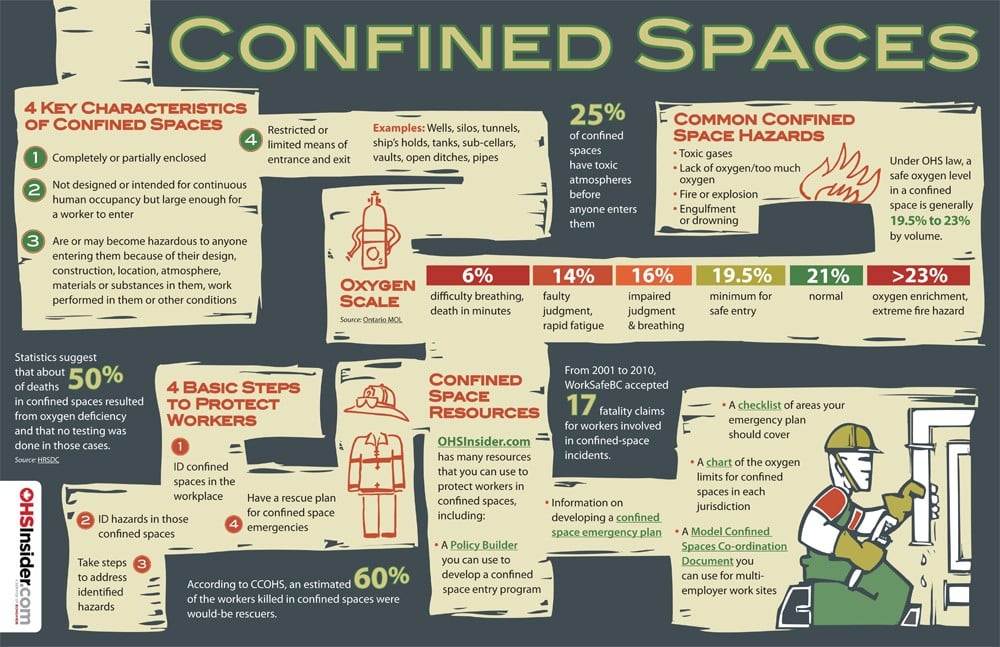Confined Space Entry Standard
Graham Marshall - Thursday, December 27, 2012
The importance of organizations having a good Confined Space Entry Standard for employee use within confined spaces cannot be understated.
Confined spaces are either partially or completely enclosed working environments.
They are only meant for short-term worker occupancy.
And entering confined spaces is always "high-risk" because of many factors like space-design, previous storage history, and atmosphere.
When implementing an appropriate Confined Space Standard of control, the risk to workers who perform in confined spaces and the hazards and dangers they face can be substantially reduced to the ALARP level.
Employers can keep workers safe by reducing accidents and also save money when they present their workers with a planned and safe working environment.
The picture below gives four key characteristics of confined spaces and then goes on to provide clear explanation and illustration for safety.
• Lack of oxygen results in 50% of confined space worker fatalities.
• Four important steps when working in a confined space.
• One quarter of confined spaces have toxic air environments.
• A loss in just 5% oxygen in the air causes impaired judgement as well as problems breathing.
Employers who develop proper Confined Space Entry Standards and provide training and education to workers can reduce fatalities and accidents.
Identifying and controlling the hazards, and understanding what to do in an emergency are critical.
There is no reason why anyone needs to lose their life working in a confined space.
